Five things to look out for at the 2019 Paris-Roubaix
The latest race content, interviews, features, reviews and expert buying guides, direct to your inbox!
You are now subscribed
Your newsletter sign-up was successful
A wide open race
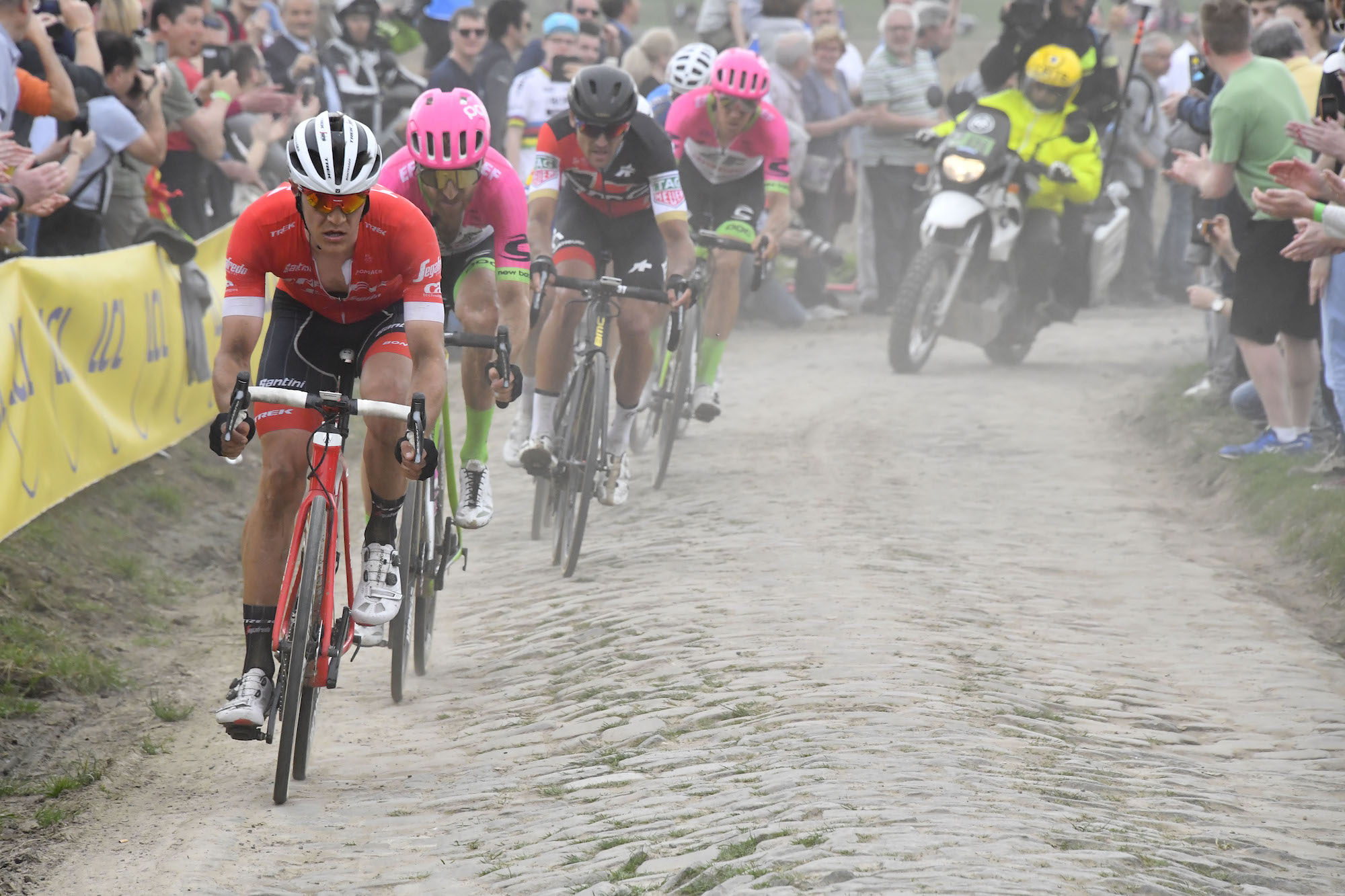
Recent editions of Paris-Roubaix have been hard to call. The last eight editions of the so-called ‘Queen of the Classics’ have produced eight different winners, a run that hasn’t been matched in the race since the 1950s.
This makes for a stark contrast to the previous decade, where you could almost guarantee that either Tom Boonen or Fabian Cancellara would be triumphant - between them, they won five of the six editions between 2005-2010.
>>> Will having no clear favourite make Paris-Roubaix more exciting?
This year’s race feels especially open. No single rider has dominated the cobbled Classics this spring, and last weekend’s Tour of Flanders threw up plenty of surprises and high-performing debutants.
Even the riders who have impressed over the spring should not necessarily be expected to go well here. Paris-Roubaix is a unique challenge that no other race can really be compared with - it’s cobblestones are tougher, more dangerous and more plentiful, while the lack of any climbs whatsoever swings the advantage firmly in favour of big, strong rouleurs packing a few extra kilos (as well as those with superior technique), over the punchier riders who might have excelled in the Flemish Classics.
Potential repeat winners
The latest race content, interviews, features, reviews and expert buying guides, direct to your inbox!
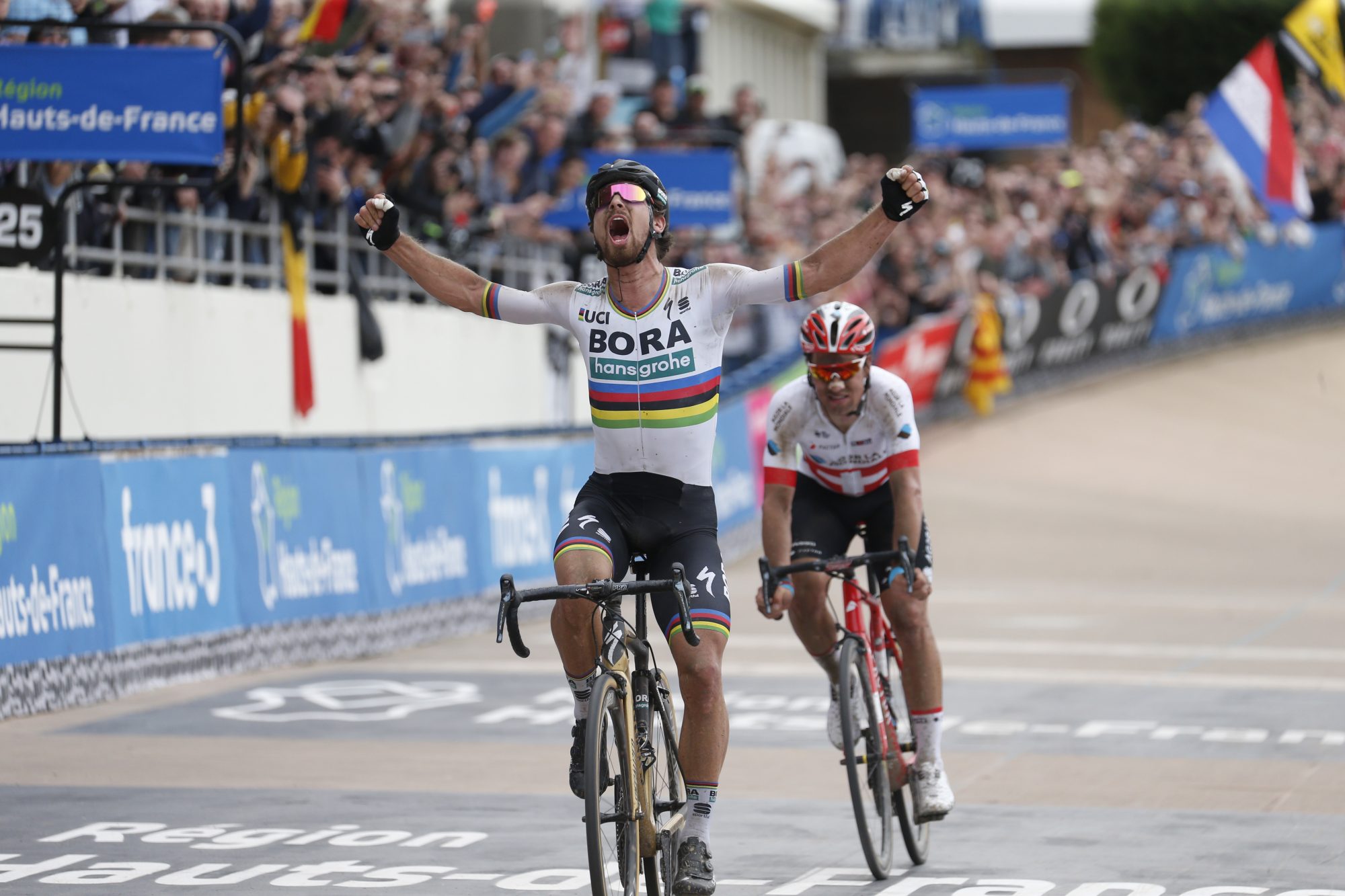
There are three former winners of Paris-Roubaix set to start on Sunday, each with a chance of ending the eight-year run of successive unique winners.
Defending champion Peter Sagan (Bora-Hansgrohe) has clearly been short of his best all spring, but then again he was also somewhat unfancied last year before taking off on a memorable 50km ride to victory.
The many probing attacks and strong finishes Greg Van Avermaet has produced this spring indicated his form is much better, even though he has now gone a whole two years without a victory in a one-day race. Paris-Roubaix is generally a more selective race than the other cobbled Classics, so the 33-year-old might have more luck shedding his rivals with attacks over the pavé.
The third rider is John Degenkolb (Trek-Segafredo), who is beginning to show something like the form that saw him win here in 2015. Second-place at Ghent-Wevelgem suggests his sprint is sharp, but surviving the attritional war over the cobbles in the lead group will be a big ask.
Potential first-time winners
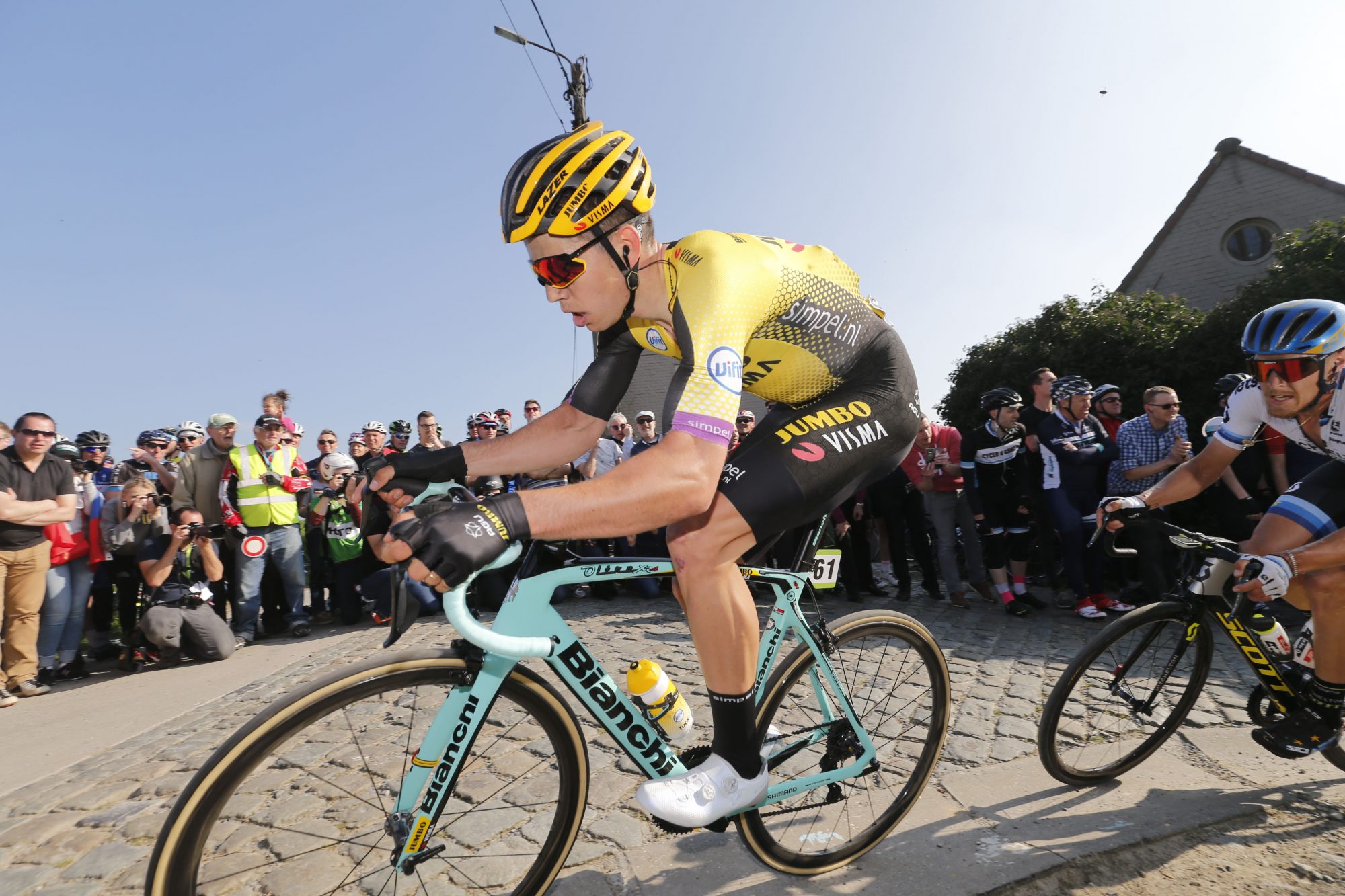
Experience goes a long way in Paris-Roubaix, where knowledge of which line to take over the cobbles and where to position yourself in the peloton can be invaluable advantages.
But there is a handful of relative novices who possess the raw talent to beat their more experienced rivals. Chief among them is Wout van Aert (Jumbo-Visma), who has looked threatening enough throughout the spring to suggest that he could win on what will be just his second Paris-Roubaix appearance. His cyclocross rival Mathieu van der Poel would also have been a contender, but unfortunately his Corendon-Circus team were not granted a wildcard invitation.
Tiesj Benoot (Lotto-Soudal) has only competed at Paris-Roubaix twice, without making the top-100 on either attempt, yet has the talent to perform well here, and his sole pro victory to date at the muddy 2018 edition of Strade Bianche suggests he could excel if the weather takes a turn for the worse.
By contrast, Alexander Kristoff (UAE Team Emirates) has plenty of experience riding Paris-Roubaix, having appeared in each edition since 2010.
But a combination of excellent form (having won Ghent-Wevelgem and podiumed at the Tour of Flanders) and a bulkier build than usual means he enters this year’s race as a major favourite - as will the on-form Oliver Naesen (Ag2r La Mondiale), despite a career-high finish here of only 12th.
And if the way the Tour of Flanders panned out is anything to go by, even young riders like Katusha-Alpecin’s Nils Politt (who was seventh last year) and Bahrain-Merida’s Matej Mohorič (making his debut) could spring a surprise.
Deceuninck-Quick-Step seeking to bounce back
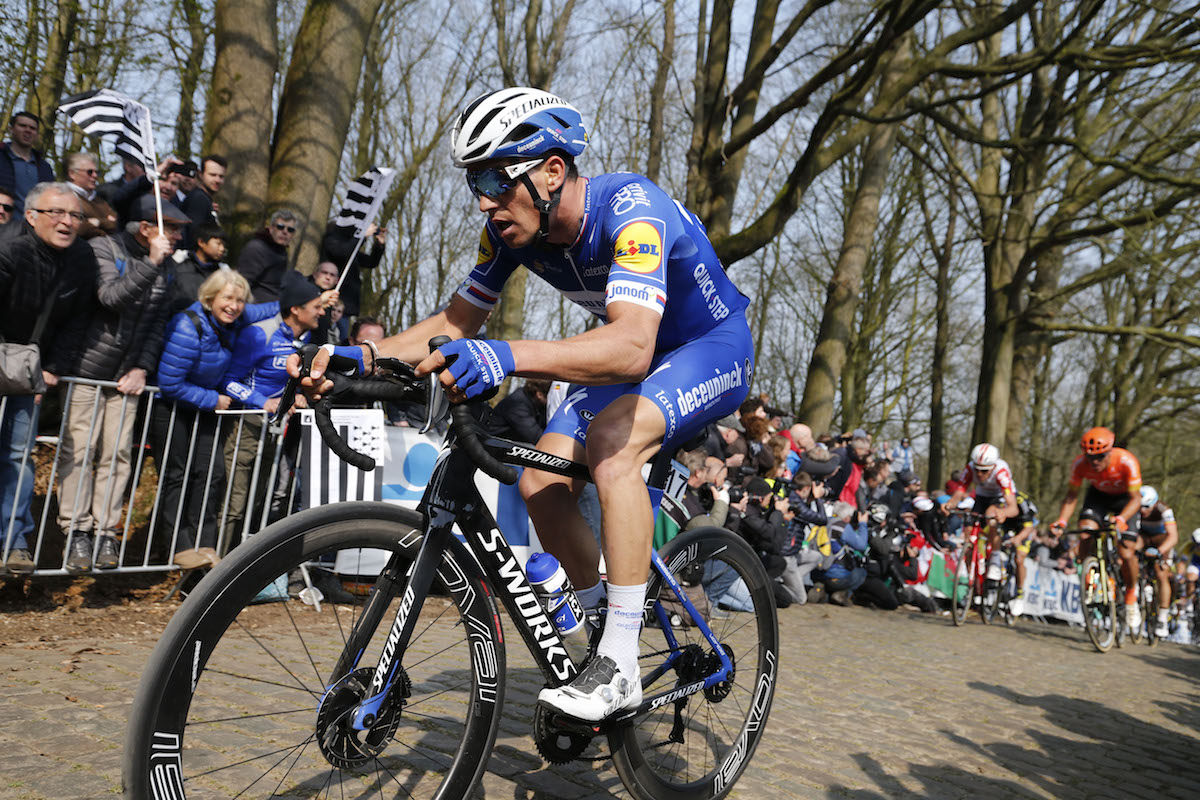
What had started out as another perfect spring for Deceuninck-Quick-Step has lost some momentum in recent races, leaving the team anxious to grab a victory at Paris-Roubaix.
The race has been a source of frustration for the team since last winning here in 2014. Last year Niki Terpstra was the best of the rest behind the long-range attack of Peter Sagan and Silvan Dillier; Tom Boonen only had the legs to sprint for second after an epic ride in 2016; and Zdeněk Štybar was narrowly out-sprinted to finish second in both 2017 and 2015.
Štybar returns this year once more in the hope of landing this elusive Monument, following what has been his best spring campaign to date. The former cyclocross world champion is probably the team’s strongest candidate, but, as ever, they boast plenty of alternatives.
If 24-year old Kasper Asgreen rides as well as he did to finish second at Flanders last week, he’d be a potential winner; Yves Lampaert is a danger if allowed up the road; and Philippe Gilbert might have saved his best form for this weekend, having made it one of his main goals to win Paris-Roubaix.
Riders and teams in last chance saloon
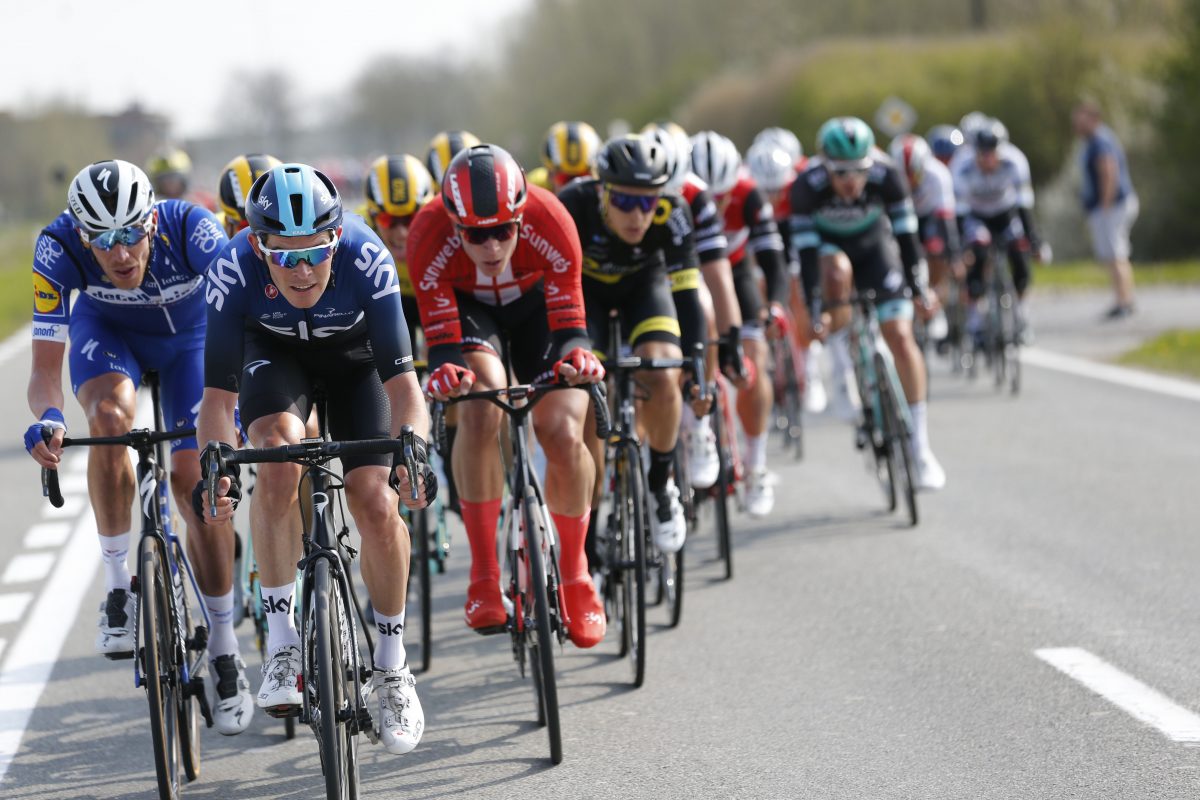
As the last of the cobbled classics, Paris-Roubaix offers one final chance for underperforming teams and riders to redeem their spring.
Despite some promise shown from the likes of Luke Rowe, Owain Doull and Dylan van Baarle, Team Sky’s campaign has never really got going. With Gianni Moscon and Ian Stannard among the roster alongside this trio, however, a strong showing at the Hell of the North remains a distinct possibility.
Trek-Segafredo are another team with a very strong team on paper that have nonetheless failed to land a victory in this year’s classics. On a good day, John Degenkolb, Jasper Stuyven and Mads Pedersen are all capable of winning Paris-Roubaix.
Sep Vanmarcke (EF-Education First) has a very good record here, with four top six finishes throughout his career, but a crash at the E3 BinckBank Classic disrupted his spring campaign. There were signs however of recovery during his excellent supporting ride at the Tour of Flanders for triumphant teammate Alberto Bettiol (who, incidentally, has opted to skip Paris-Roubaix).
Stephen Puddicombe is a freelance journalist for Cycling Weekly, who regularly contributes to our World Tour racing coverage with race reports, news stories, interviews and features. Outside of cycling, he also enjoys writing about film and TV - but you won't find much of that content embedded into his CW articles.